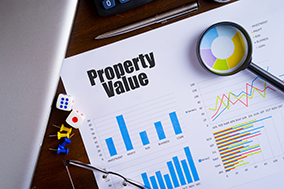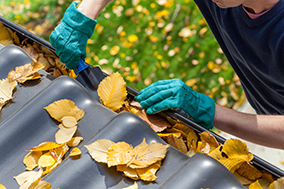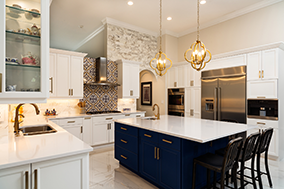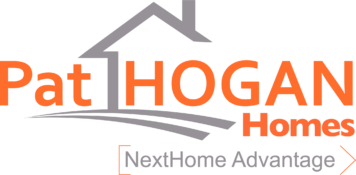Imagine you’re at a dinner party and someone brings up the topic of plumbing. They’ve had some difficulties with hot water pipes during a renovation and they’re telling the story of what happened. Then, another person in the room says, “I have a friend who’s a plumber. I always call him with my plumbing questions.”
Wouldn’t that make you think it would be nice to have a friend who’s a plumber that you could call? I try to be that kind of friend you’d like to have. If you ever have a need for a recommendation for a plumber, HVAC Specialist, contractor, electrician, etc., please feel free to reach out to me. I can help.
I also want you to feel comfortable calling me whenever you have a question or concern regarding the housing market, buying or selling a home, or anything else that’s real estate related. Even if you have no plans to move in the foreseeable future, please consider me your source for real estate answers and advice.
Enjoy your day today!

“The highest compliment anyone can give me is to recommend me to a friend. If you know of anyone with a real estate need, I would appreciate your referral, and promise to take good care of them”.
August 2019 National Housing Report
HOME SALES YEAR-OVER-YEAR DIFFERENCE -1.6%
August 2018 to August 2019
MEDIAN SALES PRICE AUGUST 2019 $263,000
+5.7% from August 2018
AVERAGE OF 44 DAYS ON THE MARKET
+1 days from August 2018
NUMBER OF HOMES FOR SALE
-5.5% from August 2018
*** Average of 54 metro areas.
Should You “High Ball” Your Listing Price?

One of the most important decisions you make when selling your home is setting the listing price. It can be tricky. After all, if you price your property too low, you leave money on the table – perhaps thousands of dollars. On the other hand, if you price your home too high, many buyers won’t even bother to view it because they believe it is too expensive.
Even with that reality, there are some sellers who contemplate setting a high listing price in the hopes of a windfall. They want some unsuspecting buyer to fall in love with the home and buy it – even though it’s overpriced.
That rarely, if ever, happens.
Instead, the listing often languishes on the market because its listing price is conspicuously much higher than its market value.
Think about it. If two similar homes, side-by-side, are for sale, and one is priced $40,000 higher than the other, wouldn’t you wonder what was going on? That’s exactly what the market thinks. “Why is that home priced so high?”
Of course, many buyers, who might otherwise be interested in the property, won’t even consider seeing it, simply because it’s outside their price range.
It gets worse. When an overpriced home sits on the market with no offers for several weeks, the price will often need to be adjusted down. That helps the situation a little. However, you’ve lost the excitement created by a “new listing.” Yours is now an old listing struggling to get attention.
There’s a better way…
Set your list price at or near the market value and it will be much more likely to generate interest from qualified buyers and maximize how much you make on your home.
That market value may even be higher than you think!
Interested in finding out what that value is in today’s market? Call today.
4 Home Hazards You May Not Know About

You have smoke detectors. Your doors have good locks. The bathtub has a slip-free pad. By all accounts, your home is a safe and secure place for your family to live.
However, there are some hazards that many homeowners don’t consider or even know about.
For instance:
1. Blocked eavestroughs. Eavestroughs clogged with leaves and other debris can cause rainwater to overflow next to your foundation and create a leak.
2. Clogged dryer vents. High temperature air combined with lint is an ideal condition for a fire. Check and clear the dryer vent at least once a year.
3. Dirty faucet heads. Kitchen and bath faucets often have built-in screens to spray the water evenly. Unfortunately, dirt and other contaminates can build up on these and possibly affect the quality of the water. Clean faucet heads regularly.
4. Tripping hazards. You could step around a loose section of carpet for years and then one day, in a moment of distraction, trip over it and fall. When you see a potential tripping hazard in your home, don’t ignore it. Fix it.
Being diligent about home safety takes a little bit of time. But, if it prevents one injury or illness, it’s worth the effort.
Can New Kitchen Appliances Increase the Value of Your Home?

Next to a major kitchen renovation, replacing appliances is the most expensive way to upgrade the space. So, if you’re purchasing a new refrigerator, stove or dishwasher in order to make your home more attractive to buyers, you want to make wise purchasing decisions.
The most important consideration is how the appliances will look in the kitchen. Ideally, they should match in color and style. They should also be the right size for the space. The last thing you want is a fridge that’s so large it dominates the room, or a stove that’s a completely different style and looks out-of-place.
Appearance is important, but so are the features. Buyers viewing your home will scrutinize the appliances. They’ll notice if the fridge has a cold water and ice dispenser. They’ll ask if the dishwasher has noise-reduction features. Double ovens and quick-heating burners (which are now available on electric stoves) will also get a buyer’s attention.
Power consumption is also a big issue these days. Increasingly, buyers are interested in the energy efficient features of a home – appliances included.
Kitchen appliances may seem minor compared to the overall appeal of your property, but they do make a difference. Purchase wisely!

